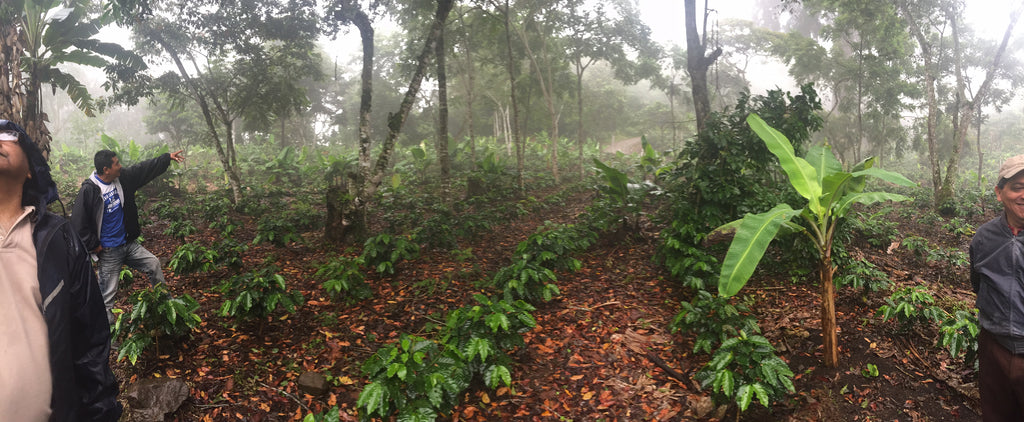Single Origin Coffee
Single Origin Coffee
What is Single Origin Coffee?
The definition of single origin coffee can be quite narrow—one type of bean from one area of one farm (sometimes called a micro-lot), roasted in one way. Alternatively, it can be broadly inclusive—un-blended coffee from one particular region (Sumatra, Kenya, etc). Here at Cervantes Coffee our definition of single origin falls somewhere in the middle. Our beans are sourced from one specific farm or cooperative and are not blended with coffee from any other region. While the definitions may vary, there is no denying that single origin coffee carries with it many benefits.

Why Drink Single-Origin Coffee?
Taste
Differences in soil type, climate, elevation, and growing techniques produce coffee of varying flavor and aroma. Single origin coffee thus contains unique characteristics from the region in which it was produced, providing consumers as pure a drinking experience as the communities themselves have been enjoying for generations. For example, Adolfo, born and raised in Antioquia, Colombia, has been producing coffee since 1945. The farm has been passed from one generation to another one throughout the years. It belonged to Gustavo Taborda, Adolfo’s father during a period of 20 years from 1993 to 2013. Gustavo Taborda then sold the farm to his son Adolfo Taborda in 2013.
Adolfo, who had a farm in another mountain of the region 4 hours away by car, has been in the business his whole life. He decided to sell his current farm to buy his father's and moved with his wife Zoé and his daughter Lorena to the place where he had grown up to manage his new coffee farm. Today the Taborda Cortez family has a plantation of about 12,000 trees and the extended experience and many advantages on the good conditions of the soil have helped Adolfo develop an exceptional coffee that deserves to be shown and recognized as such. Additionally, Adolfo and his family are responsible and disciplined people full of love and pride for what they do, and that is why their dedication and hard work deserves to be compensated at this fair price. (But this Single Farm coffee here!)

Additionally, coffee blends allow roasters to easily cover up inadequacies within the beans and dilute characteristics of a given region. The transparency of single origin coffee, on the other hand, requires the use of only the highest quality beans. Learning to differentiate between origins, consumers can easily identify their favorite bean and produce their perfect cup of coffee.
Sustainability
Single origin coffee nurtures relationships between producers, roasters, and consumers. Oftentimes, coffee farmers are forced to go against their better judgment and contradict long-standing farming processes and traditions, to mass produce beans for large companies which are searching for huge quantities of coffee, regardless of quality or environmental impact. We, as small-batch buyers and consumers of coffee, can communicate with the farmers, encouraging improved growing techniques and environmental sustainability. As the farmers grow better coffee and use more environmentally-friendly growing techniques, they receive higher prices for their crop—improving the livelihoods of entire families and communities, and keeping the land healthy for the future generations of growers.
Know Where Your Coffee Comes From
When it comes to coffee, we here in the US cannot truly buy local, our climate simply does not allow for the beans to be grown close to home. Buying single origin allows coffee drinkers to overcome this barrier. By learning the background and stories of the farmers who plant, groom, harvest, and process your coffee, you can feel safe knowing that the processes are environmentally safe and the farmers are receiving fair prices (see the Cervantes Coffee website for details about each of our coffee sources and the farmers and their cooperatives who work so hard to grow the perfect coffee bean).
We ask you to take a stand for those farmers who work every year to make their coffee better. Different. Fairtrade is good. Organic is good. But if you do not know where your coffee is from, then what good is it? Be a part of the Single Origin movement. Know where your coffee is coming from!

